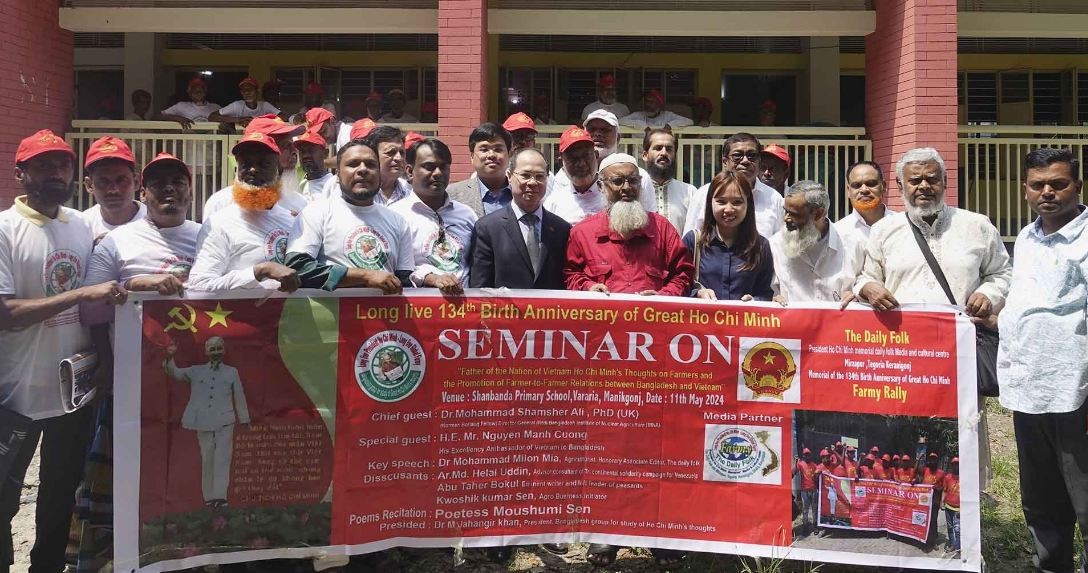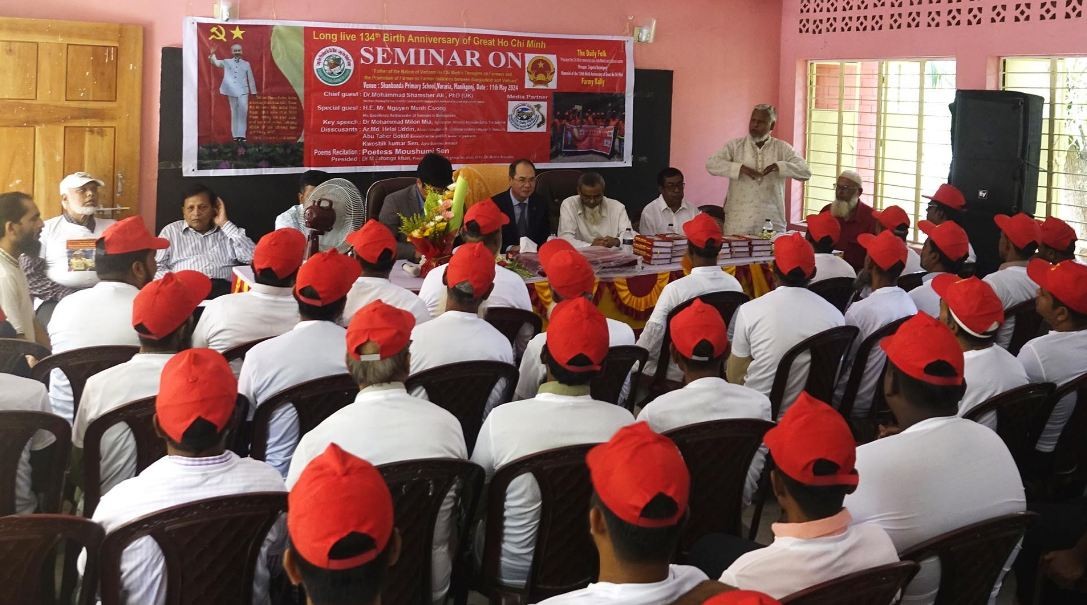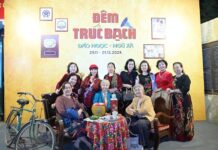President Ho Chi Minh’s ideology on farmers and agriculture remains timeless and plays a pivotal role in fostering Vietnam’s advanced agricultural sector, serving as a developmental model for countries with similar conditions, such as Bangladesh. This was highlighted at a recent seminar held in Manikganj district by the Vietnamese Embassy in Bangladesh and a group of Bangladeshi researchers dedicated to the late leader.
The event commemorated the 134th anniversary of President Ho Chi Minh’s birth (May 19, 1890 – 2024) and the 70th anniversary of the Dien Bien Phu Victory (May 7, 1954-2024). Ambassador Nguyen Manh Cuong, along with other delegates, participated in the seminar, as seen in the accompanying images.
 |
| Ambassador Nguyen Manh Cuong and delegates at the seminar. Photo: TG&VN |
Ambassador Cuong offered insights into the life and revolutionary journey of President Ho Chi Minh, emphasizing his pivotal contributions to Vietnam’s struggle for national liberation and reunification. Notably, the victory at Dien Bien Phu in 1954 compelled French colonialists to sign the Geneva Accords, bringing an end to the war in Indochina.
Throughout his life, President Ho Chi Minh held a deep affinity for farmers and underscored their critical role in the Vietnamese revolution. His ideology on the peasantry and agriculture remains a cherished legacy for the Vietnamese people and serves as a guiding principle for the Party and State in their policies and guidelines. As a result, Vietnam has witnessed significant improvements in agricultural productivity and the quality of life for farmers in recent times.
The ambassador expressed his desire for enhanced people-to-people exchanges between the two countries, fostering connections between farmers’ associations and sharing agricultural expertise for the mutual benefit of both nations.
 |
| The seminar focused on Ho Chi Minh’s thoughts on farmers and promoting exchanges between Bangladeshi and Vietnamese farmers. Photo: TG&VN |
Bangladeshi scholars, researchers, and association representatives expressed their profound respect for President Ho Chi Minh and their warm sentiments towards Vietnam and its people. They recalled how, in 1971, the people of Bangladesh marched in support of Vietnam and President Ho Chi Minh right after their own country gained independence.
Researchers affirmed the historical parallels between the two nations in their struggles for national liberation and highlighted their enduring friendship and mutual support in nation-building endeavors. Scholars from Bangladeshi universities voiced their admiration for Vietnam’s recent socioeconomic, scientific, and technological advancements, particularly in agriculture.
They shared insights into Vietnam’s agricultural extension policies and the National Target Program on new-style rural area development for 2021-2025, expressing confidence that Vietnam is on its way to becoming a developed country with advanced agriculture, serving as a model for Bangladesh in rural development and agricultural modernization.
In addition to the insightful discussions, several scholars and representatives of the Bangladesh Farmers’ Association presented Ambassador Cuong with self-authored books and poems celebrating President Ho Chi Minh and the heroic struggle of the Vietnamese people for national liberation.
Local guests at the seminar expressed their eagerness to visit Vietnam and directly experience the culture and daily life of its people. The political ties between Vietnam and Bangladesh have been consistently strong, as evidenced by National Assembly Chairman Vuong Dinh Hue’s visit to Bangladesh, which marked a significant milestone in bilateral relations.
Economic exchanges between the two countries have also been robust, with a total two-way trade turnover reaching USD 1.05 billion. Bangladesh’s exports to Vietnam in the previous year amounted to USD 130 million, a record high.
Vietnam makes breakthroughs under Party’s leadership
15 years after founding the Communist Party on February 3, 1930, Vietnam, under the Party’s leadership, made breakthrough in the long war against the French with the successful August Revolution.








